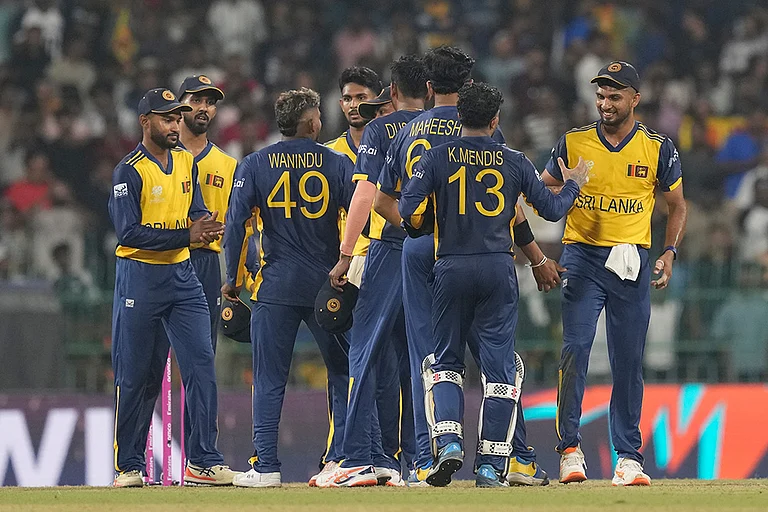MELANCHOLY was writ large on the face of L. Lakshman, chairman of the Madras-based Rane group, when he took over as alternate president of the Associated Chamber of Commerce (ASSOCHAM) recently. What should have been a routine matter had become a contentious issue, with obvious caste overtones. Several companies of the Rs 2,500-crore MAC-SPIC group and the Rs 1,500-crore Murugappa group have quit the Madras Chamber of Commerce and Industries in protest. These industrial houses, owned by Chettiars, are angry with the Brahmins for hijacking the coveted post for the second time in a row.
By the convention of rotation in the different zones, its the Madras Chambers turn to nominate a candidate for the post of alternate president for 1996-97. He would automatically become the president in 1997-98. The norm is to send the senior-most past president of the chamber to the apex body. The members expected V. Chidambaram, 55-year-old chairman of Western Thomson (a MAC group company) and India Radiators to be the nominee from the southern metropolis. Chidambaram is a close relative of A.C. Muthiah of the MAC group and the late M.V. Arunachalam of the Murugappa group.
But, the auto component manufacturers lobby within the chamber felt Lakshman, who handled his tenure (1995-96) as president of the chamber well, was more suited for the top slot. But with the auto component sector being controlled by Brahmins, Chettiars are seeing red at Lakshmans elevation, though no ones mentioning caste.
The companies from the MAC-SPIC group that have sent in resignations are: South India Corporation, Tamil Nadu Petroproducts Ltd, First Leasing, UB Petro products, Western Thomson, India Radiators and Foresight Financial Services. The Murugappa groups list include TI Cycles, Parry & Co, TI Diamond Chains, Cholamandalam Investments and Carborandum Universal.
Three committee membersChidambaram, M.M. Venkatachalam of Parry Agro and Masilamani of the MAC grouphave also resigned in protest against the manner in which seniority was ignored. "This has happened for the second time. Chidambaram should have got it ahead of N. Shankar in 1991," says a Chettiar businessman.
H.L. Somany, the newly elected ASSOCHAM president, tried to broker peace before the October AGM. Says he: "As a promoter chamber, it was well within the Madras Chambers rights to nominate anyone for the apex body. But it is my duty to help resolve the crisis. Unfortunately, the untimely demise of M.V. Arunachalam prevented us from effectively solving it." Somany succeeded in stopping the Chettiars from quitting ASSOCHAM. But the most affected person is Lakshman himself. He says the ruckus was avoidable and that he would have gladly given the slot to Chidambaram if he had known earlier about the reservations of the other group.
Sources close to Lakshman say that "to quit at this stage would undermine the credibility of the AGM of the Madras Chamber". In reality, once the spate of resignations started, there was no face-saving exit for either side. And the Madras Chamber is the poorer for it. Nearly 20 per cent of its money comes from Chettiar companies. With more companies threatening to pull out, it may be too busy lobbying for its own funds to address the needs of industry in general.


























